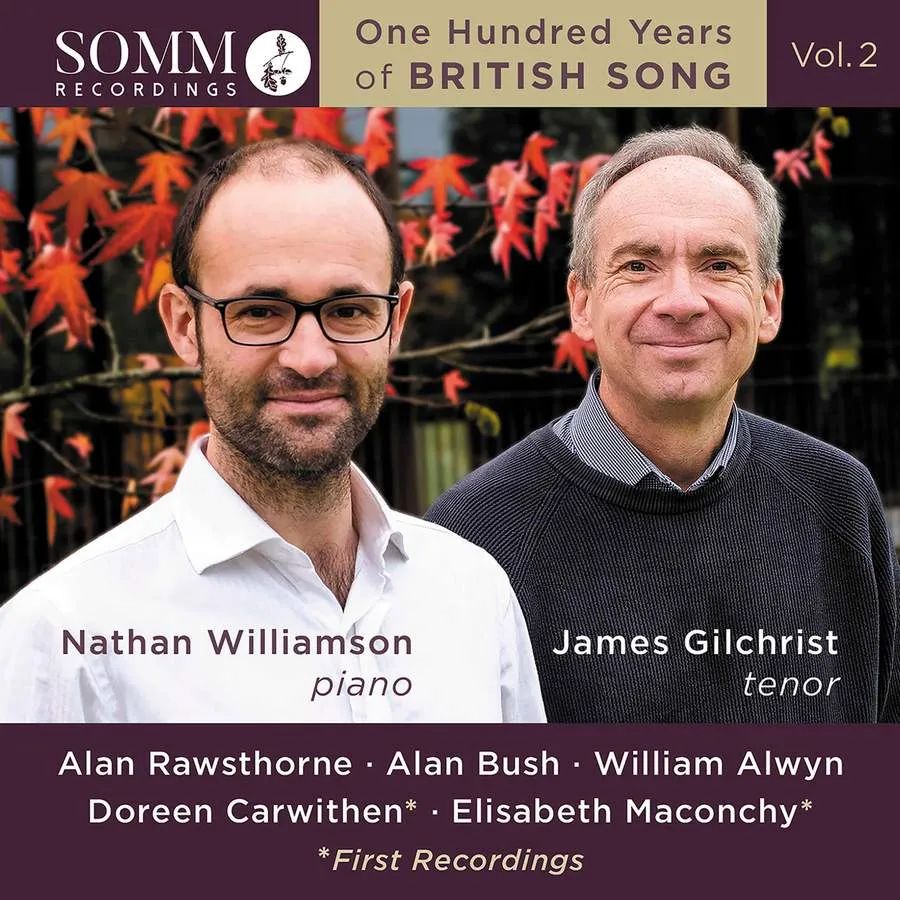
100 Years of British Song, Vol. 2 Alwyn: A Leave-Taking; A Bush/Rawsthorne: The Prison Cycle; Carwithen: 3 Songs to Poems by Walter de la Mare; Slow Spring etc; Maconchy: Three Donne Songs; Rawsthorne: Two Songs to Poems of John Fletcher James Gilchrist (tenor), Nathan Williamson (piano) SOMM SOMMCD 0636 63:37 mins
It’s increasingly difficult to find obscure or unrecorded music which is actually worth listening to, but this disc manages to do it. Why, for instance, do the seven songs of William Alwyn’s 1978 cycle A Leave-Taking not feature more often in recitals? Tenor James Gilchrist’s intense interpretation makes a compelling case for it. The title song in particular is hauntingly bleak, and throughout the cycle pianist Nathan Williamson’s searching examination of Alwyn’s strange, unsettling harmonies is a major factor.
The pair are equally impressive in the taut Prison Cycle co-authored by Alan Bush and Alan Rawsthorne, whose five songs powerfully distil the mind-scrambling experience of captivity in a cell. Gilchrist could easily have piled on the agony here, but an element of restraint, with painstaking articulation of the German text, pays greater dividends in the long run.
The ten remaining songs are first recordings. The wide-reaching intervals of Elizabeth Maconchy’s Three Donne Songs are pliantly negotiated by Gilchrist, though his pronounced vibrato on sustained notes is occasionally obtrusive. The seven songs by Doreen Carwithen which end the recital are the only ones she wrote, and the quality of them makes you wish for others. The delicate sentience of ‘Noon’ and ‘Echo (Seven Sweet Notes)’ from three Walter de la Mare settings is captivatingly evoked by Gilchrist and Williamson, who in his excellent booklet notes calls Carwithen’s songs ‘real gems’. They are, and they whet the appetite for the third and final volume in this eminently useful series.
Terry Blain